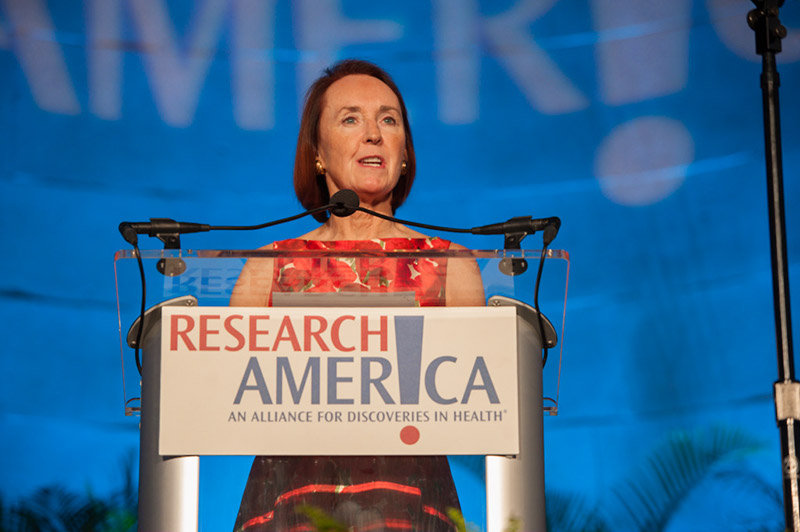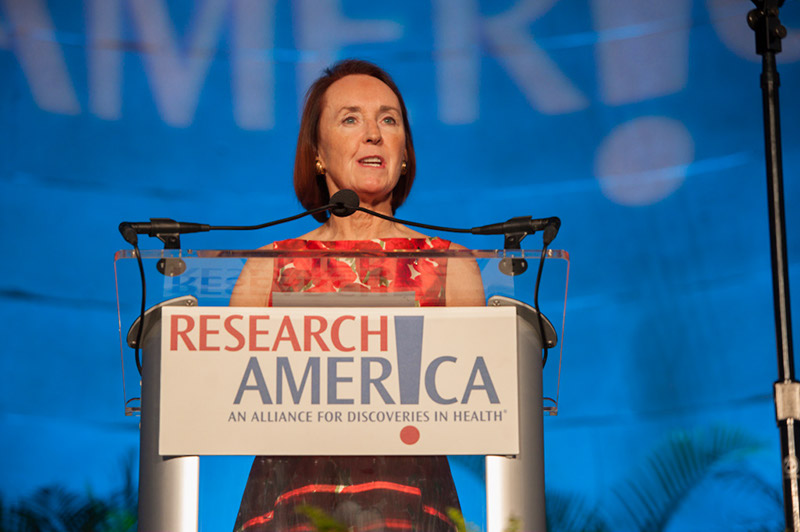Not a moment too soon


Dear Research Advocate,
As part of the U.S. Chamber of Commerce’s launch of Civics Forward, CEO Thomas Donahue challenged the business community to play a leading role in civic education, for no less a reason than assuring the future of our nation. This challenge is reminiscent of his call to the science community last February at the AAAS meeting to do more with the business community, in order to achieve shared aspirations. As he said at the time, “without science there is no innovation, and without innovation, there is no industry,” going on to emphasize the enduring value the business community accords to science.
There is no question that heightened attention to civic education and public engagement is on the rise in academia, through programs like those I learned about at UC San Diego and UC Irvine this week. Graduate students in science are learning to communicate more effectively with the community and policymakers, are learning entrepreneurial skills, and are learning about advocacy, as well. I’d like to think we are nearing a tipping point in that regard, and not a moment too soon!
Not a moment too soon because advocacy is crucial to ensuring a policy environment that supports research and innovation, and drives robust federal funding. The clock is ticking toward midnight November 21 when the Continuing Resolution (“CR”) extending government funding expires. Many Members of Congress are in their home districts now — a perfect time to set up a meeting. And check out our action page for sample Tweets, or send an email urging your representatives to reach a bipartisan agreement by or before November 21st. Life-saving innovation and discovery cannot afford another delay, aka another CR.
CRs certainly don’t favor Nobel Prize-level discoveries like those we will learn about next week. In fact, CRs send a discouraging message to young scientists, in particular, about what level priority this nation places on science, i.e. something that can be put on hold. Young careers are fragile; our nation should be sending nextgen scientists messages of encouragement! Because there will be broad media attention to the Nobels, it is a once- a -year opportunity to make the point that without solid public support, few if any extraordinary breakthroughs are possible. Join us to turn up the volume next week — speak out on social media and/or to local news outlets.
Speaking of the need to encourage young scientists, kudos to NYU Langone Health and the new Aspen Institute Science & Society Program for InspireScience, a lively symposium in New York City focused on how to build a rewarding career both inside and outside the lab. Some 150 early-career scientists from institutions across the city learned about community outreach and advocacy opportunities while hearing personal reflections from prominent scientists.
We salute the Agency for Healthcare Research and Quality (AHRQ) as it marks 20 years of support for research to make health care safer, higher quality, more accessible and affordable across all sites of care. Check out Director Gopal Khanna’s blog discussing the agency’s track record and its plans for the future.
As a follow up to our September alliance meeting with Rep. DeGette and Upton staff on a new 21st Century Cures bill, our October meeting (10/25) will focus on how to best support this effort. If you are an alliance member, expect an email soon with registration information and background materials. Contact Jacqueline Lagoy ([email protected]) for more information.
There is a growing urgency to solve the problem of antibiotic — or antimicrobial — resistance (AMR). Learn how the CDC has challenged communities, providers, organizations and companies across the U.S. and the globe to take up this fight. And learn what must happen next, including what you can do. Research!America and partners are hosting a briefing on Capitol Hill on October 24, 2019. Register here to join us and hear more. We look forward to seeing you there.
Sincerely,
Mary Woolley




